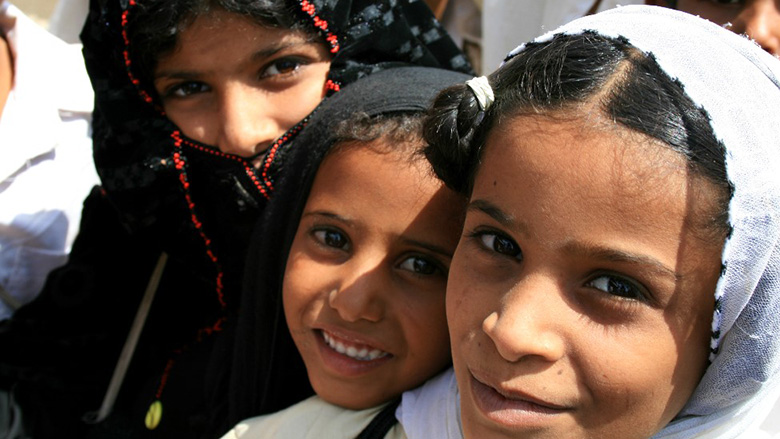KHARTOUM, January 7, 2016 – For the past two years, Fatima Ibrahim has been making the arduous one-hour trek from her home in Hay Al-Arab in Kassala State to teach at a school in one of the most remote areas in Sudan.
While she admits the commute is challenging, Ibrahim said she considers it a small price to pay in exchange for being able to teach some of the neediest children in the country.
“I travel a long distance to and from home every day and water is scarce here, but it is a good school and the kids are great,” she said.
Children throughout Sudan face several difficulties when it comes to receiving a formal education. As a result, more than 40% of children between the ages of five and 13 are out of school, more than 1.5 million of whom are girls. Of those in school, more than half a million are at risk of dropping out. Nomadic and displaced children and those in war-torn areas are at greater risk of exclusion, with girls often facing a higher risk of not completing their formal education.
The 2010 Sudan Household Health Survey shows that 53.4% of children in the poorest households are not in school, compared to 3.6% in the richest. In some areas, these estimates are compounded by poor educational infrastructure, such as insufficient or non-existent classrooms, the scarcity of learning materials such as textbooks, the lack of properly trained teachers and teaching materials, as well as school levies and fees that prevent the poor from sending their children to school.
Through the World Bank-supported Basic Education Recovery Project, the government is making changes to its education system to improve the learning environment in several remote areas. With a $76.5 million grant from the Global Partnership for Education, the project has so far funded the construction of 632 new classrooms, along with latrines and water tanks. The project will also provide 13 million textbooks and teacher guides countrywide, ensuring that both children and teachers have access to improved education materials.
In addition to improving the Teacher Management Information Systems, the project has also funded Sudan’s first National Learning Assessment, and is supporting the development of its upcoming 2017-2021 education strategy.
For Suad Abdel-Razig, Sudan’s first female Federal Minister of General Education, building a sustainable system is essential.
“One of the project’s main achievements, beyond the provision of educational services, is that it has set the example for strengthening Sudan’s education system through its various components,” Abdel-Razig said.
To ensure sustainability through long-term behavioral change, the project puts a strong emphasis on empowering communities to take a more active role in the education process. From identifying their own needs through inclusive parent-teacher associations to taking charge of resource mobilization and school construction, the project is helping to facilitate dialogue within communities.
The project also includes a school grants component, which is the first initiative of its kind in Sudan. Linked to local parent-teacher associations, the grants help alleviate the school-related needs of the most vulnerable communities, such as administrative fees and accommodations to teachers who are often hosted by the communities, among others, making education affordable for more households.
Through its partnership with the Global Partnership for Education, the World Bank is helping to empower Sudan’s young by ensuring they have the skills necessary to contribute to the nation’s economic transition.

